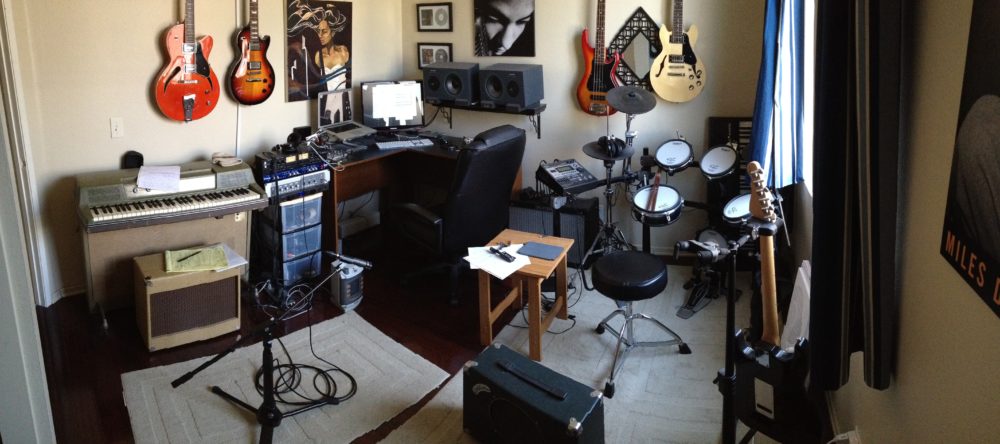As a musician and a recording engineer, I often fall victim to Gear Acquisition Syndrome. There is always something new coming out that practically dares me to buy it. It could be a tool that can improve on a workflow. It might be a new sonic characteristic–like a vintage instrument that will allow me to get a sound similar to something in a song I like. There is always something.
But does it matter?
What if I had $5000 to spend on whatever I wanted?
This is a fun little “what if” exercise that I do sometimes: Would I get a Gibson Custom Shop 61 reissue ES-335 or a Marshall 18 watt 1974x handwired combo? Or what about an antique burst Custom Shop Strat? I could do so much damage with a $5000 budget, but at the end of the day, would getting a new guitar or amp make me a better guitarist?
I feel that the occasional gear upgrade helps to keep you engaged in music. It also helps to motivate you to play more. When I get a new piece of gear, I am always so excited to pick it up and use it as much as possible.
If it is a guitar that has a new pickup configuration, I will spend hours learning new styles that are better suited on the new setup. Could I do the same thing with my old guitar? Sure, it just wouldn’t be as fun and would take more discipline to maintain the motivation to learn those new styles.
This brings me to my point. I always feel the desire to buy new gear when I’m not playing a lot of music. When I am working on a music project or playing in a band, I usually don’t have any inclination to buy new gear. My motivation comes from wanting to work on music for the band or the recording project and I am held accountable by the others with whom I’m working.
I usually get an itch to buy stuff when I am not creating, I’m not in a band or I’m not working on any projects.
In the end, I really think it boils down to a matter of motivation. For most people, including me, the gear that is available today has gotten so good, that entry level gear is good enough to allow us to express what we’re trying to express.
You could argue that buying new gear makes it a little easier to market yourself as a musician or producer. Maybe having the better guitar, microphone or mixing console (do people even still use mixing consoles?) helps as you look to promote your services.
But I’d be willing to bet that the only person who would be able to tell that you were playing a Gibson instead of an Epiphone is your accountant.
One of the most important factors for me to invest in gear is to help me stay motivated to produce something or be creative when I get busy. There is nothing wrong with this approach . . . as long as you don’t spend beyond your means.
